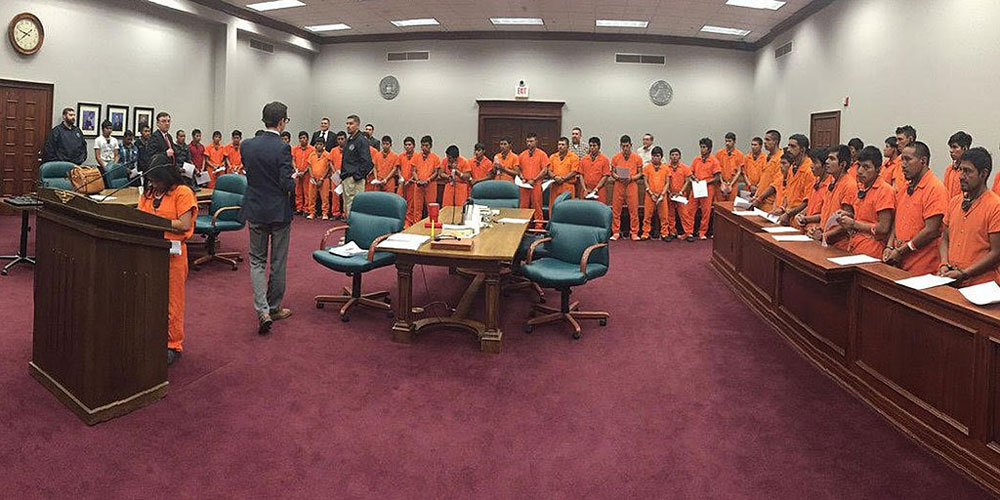
January 7, 2020; Government Executive
The Trump administration is attempting to decertify the National Association of Immigrant Judges (NAIJ), the union that since 1971 has represented federal immigration judges. The attack on the union appears to be in response to its vocal opposition to administration efforts to limit judges’ authority, force them to speed up hearings, silence critics of immigration policy, and cut resources for support staff.
Last August, the administration filed legal documents with the Federal Labor Relations Authority (FLRA) signaling its intention to begin the decertification process. On January 7, 2020, a hearing was held in an executive branch court. The US Department of Justice, which oversees the federal immigration courts through its Executive Office of Immigration Review, argued in court that the immigration judges are managers who set policy and are therefore ineligible for collective bargaining.
This is the same argument that was made in 2000, when the Clinton administration tried to decertify the union. At that time, the FLRA determined that the immigration judges were not managers. Nothing much has changed—except that the Trump administration has issued numerous orders further limiting judges’ authority.
“This is nothing more than a desperate attempt by the DOJ to evade transparency, accountability, and undermine the decisional independence of the nation’s 440 Immigration judges, said Judge Ashley Tabaddor, president of the NAIJ, back in August. “We are trial court judges who make decisions on the basis of case specific facts and the nation’s immigration laws. We do not set policies, and we don’t manage staff.”
Sign up for our free newsletters
Subscribe to NPQ's newsletters to have our top stories delivered directly to your inbox.
By signing up, you agree to our privacy policy and terms of use, and to receive messages from NPQ and our partners.
Emphasizing the absurdity of attempting to characterize the judges as managers, Tabaddor went on to say, “We don’t even have the authority to order pencils.”
In the January hearing, the attorneys for the union countered administration arguments. Eric Katz of Government Executive wrote how the attorneys for the union explained, “judges are now under strict oversight by management, facing new performance evaluations, quotas for their annual caseload, and restrictions on speaking publicly. On cross examination, the justice department witness [says] judges ‘are not supervisors.’”
“Immigration judges are at the bottom of the org chart, so they don’t supervise anything,” said James McHenry, the director of the Executive Office of Immigration Review. “They cannot hire or fire anyone.” Hiring, firing, and supervising others are generally seen as key characteristics of “management” positions under US labor law.
NAIJ is affiliated with the International Federation of Professional and Technical Engineers, which represents thousands of federal employees, including NASA’s rocket scientists, engineers with the Army Corps of Engineers, and administrative law judges. According to the union, the effort to decertify NAIJ is part of a larger effort by the White House to limit the power of unions that represent federal employees. The administration has issued a series of executive orders that aim to disempower the federal workforce and evade accountability. In the case of the immigration judges, the administration has been particularly aggressive in an effort to silence any critique of its border policies, from separating children from their parents to forcing asylum seekers to wait in Mexico while pursuing their asylum cases.
NAIJ is working with members of Congress to restore the independence of immigration judges by removing them from justice department oversight. “The DOJ’s actions, designed to silence judges and their union, further demonstrates why judges who hear immigration cases need to be placed in an independent agency,” Tabaddor stated.—Karen Kahn












